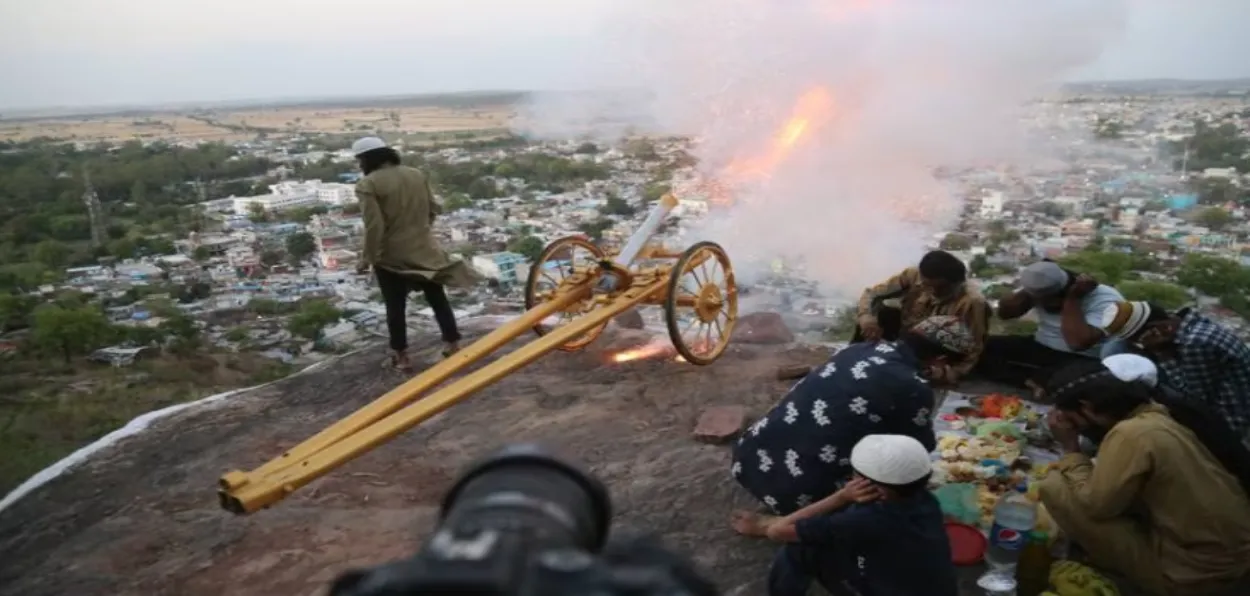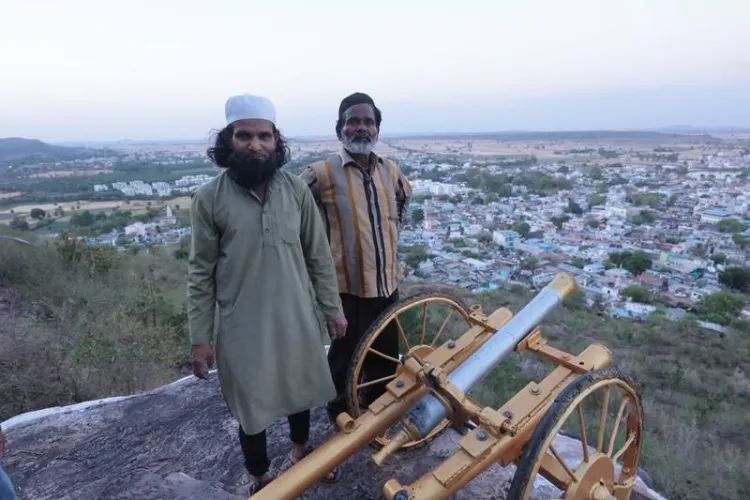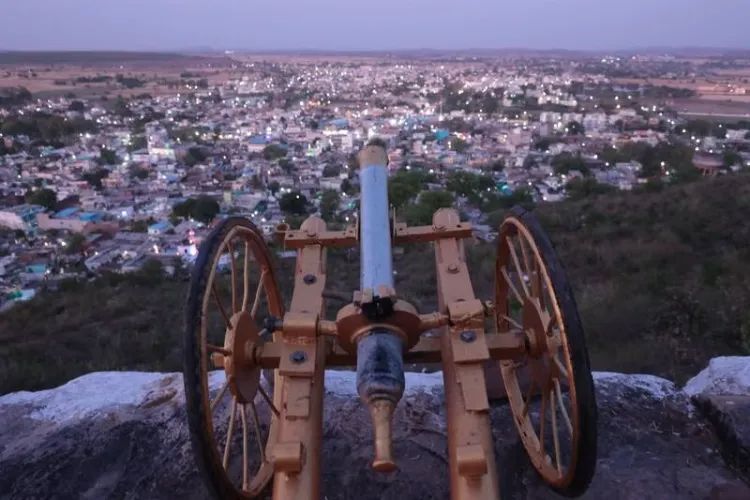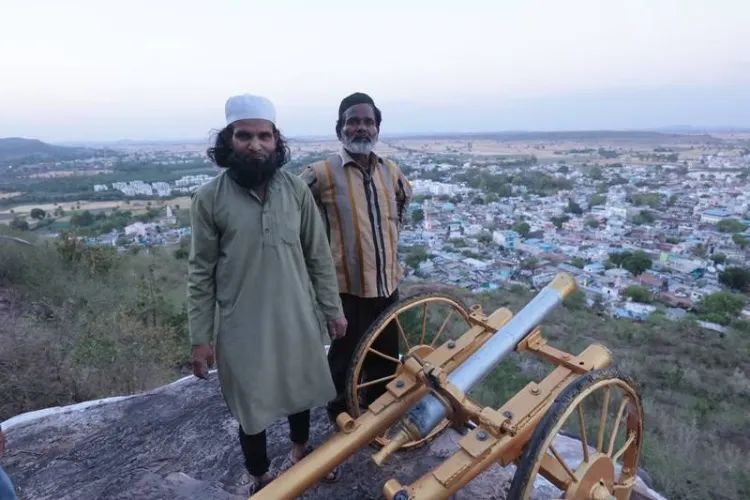
New Delhi
If you happen to be in the city of Raisen in Madhya Pradesh during Ramazan, you can hear a boom close to sunset, and see the sky will be lit up. The same scene happens in the morning twilight before the sunset.
It’s because a cannonball is fired from the hilltop located in the city, which is at a distance of about 45 km from the capital Bhopal, to signal Muslims living in the city and villages around it that it’s time for them to break their fasting and close to beginning of it (morning).
This tradition is about 200 years old and has been kept alive as part of Indians' love for their traditions and cultural pluralism. Firing cannon to break the fasting was generally thought to be a practice in the Arab world in the past when there was no watch or clock.
 Shawkat Ullah and his friend standing beside the cannon
Shawkat Ullah and his friend standing beside the cannon
From Egypt to Saudi Arabia and from Turkey to Dubai, each country has its story about the use of the cannon during Ramazan at Iftar and Sehri.
The tradition of using a cannon to signal time for the devout Muslims to wake up for Sehri (pre-dawn meals) and for Iftaari (breaking fast meals in the evening) was started in the 18th century during the rule of Begum (Queens) of Bhopal.
The princely state of Bhopal was later included in the State of Madhya Pradesh after the Independence of India in 1047.
 The Cannon and the city of Raisen, Madhya Pradesh
The Cannon and the city of Raisen, Madhya Pradesh
In the Arab world, the practice is almost extinct. However, in the small city of Raisen, it has been kept alive thanks to the government rules and the efforts of local mosque committees.
Qazi Zeeshan, a member of the local Muslim committee, said that a week before Ramazan, the 1.2-meter cannon, which is maintained by the local administration, is handed over to the town's mosque committee. A firing license is issued for a month.The cannon is cleaned, painted, and repaired before being transported to the hilltop Raisen Fort, where it is kept throughout Ramazan.
This makes people observing the fast eagerly await for the cannon burst to break their fasting at Iftaar time.
The whole city is excited about this evening and pre-dawn spectacle, for it brings them a whiff of the past.
The cannon was replaced in 1956 to prevent damage to the town's historic fort. Each cannonball requires about 250 grams of gunpowder, and this is purchased from the money raised by the local mosque committee.
Gunner Shakhawat Ullah, who sells tea in the city, is assigned the task of firing the cannon. He is the third generation in his family to be holding the responsibility of firing the cannon.
 Shawkat Ullah with Cannon
Shawkat Ullah with Cannon
Shawkat Ullah and his friends come to the hilltop to fire the cannonball in the evening. They break their fasting there.
At 4 am, Shawkat is back to the place to fire the cannonball to signal the Sehri time for those keeping the fast.
ALSO READ: We want to ensure that no Hajj pilgrim dies: Kiren Rijiju
At 45 years of age, Showkat says he hopes his son keeps alive this tradition after him as he has done after his grandfather, father, and Uncle.
